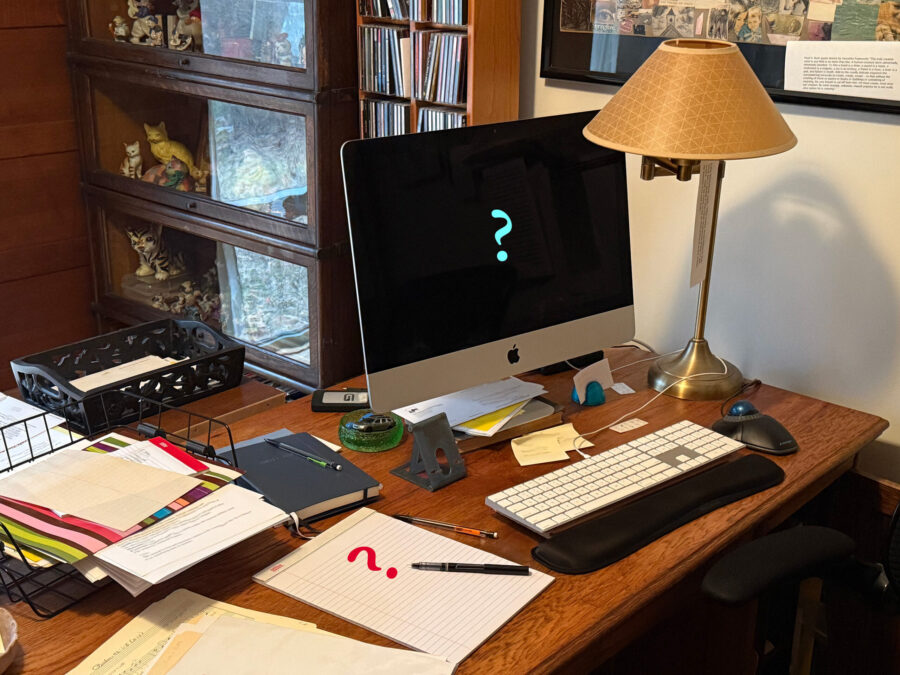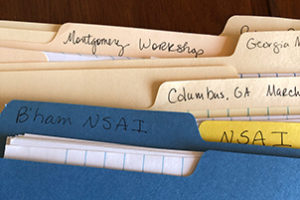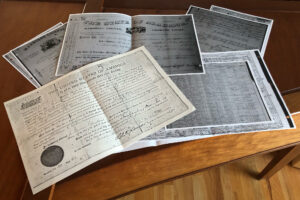Why do I write? I enjoy writing. I do not have a novel in me or even a short story. Indeed, I consider myself more suited to writing essays or personal stories. I was inspired by reading Joyce Maynard’s articles in her syndicated news column, “Domestic Affairs.” It ran in my local newspaper from 1984 to 1990. Joyce wrote about her life in a simple honest manner and it felt as if she was sitting in the same room talking to me.
“Domestic Affairs” may have been particularly interesting to me since I had married in 1983 and was eager to read other women’s family experiences. Her column was straightforward with a writing style that was descriptive without being over-done or cutesy. Her narratives were honest and forthright, even when writing about difficult family issues. I saved some of her articles and they are still in a folder in my file cabinet.

When I eventually decided to try my hand at writing, my husband (who had been an English major for a year) gave me the Strunk and White, The Elements of Style. Since then I have read other books about the craft of writing. I don’t claim to be an expert—but the skills I have gained help me to express my thoughts clearly.

Some writers write in notepads or use typewriters. I am not sure I could write without my computer. I love being able to look up synonyms or definitions, and to have research all at my fingertips. Using the computer enables me to edit over and over . . . rearranging the sentences to find a better, more logical flow.
Writing, for me, is another facet of being creative. Through sharing my stories and experiences, I communicate emotions and ideas that reflect what it is like to live in this place and time.
Good writing works from a simple premise: your experience is not yours alone, but in some sense a metaphor for everyone’s.
— Dorianne Laux (b. 1952) American poet
I was so enamored with Joyce Maynard’s style, that I purchased her first memoir when it came out in 1998—At Home in the World. In the book, she describes her complicated and creative family. She also details her nine-month affair with J. D. Salinger when she was eighteen.
Larissa MacFarquhar wrote in her article, The Cult of Joyce Maynard, for The New York Times Magazine, September 6, 1998:
She has, as she intended, let herself rip, and while Maynard diluted can be cloying, Maynard at full strength—in her very shamelessness; in the unrelenting thoroughness of her self‑exposure; in her determination not only to tell the truth but to tear it open and eviscerate it and squeeze it until it is bled dry is surprisingly powerful.
I hope one day to write about hard things and more personal reflections, but for now that seems too vulnerable. I am probably overly judgmental about myself and think others are as well.
Why is writing and telling our stories important?
The trick to begin writing deeply impactful, meaningful nonfiction is to stop telling yourself your story doesn’t matter—that your connection to the wider world is too distant and abstract to be relevant. Trust that urgency and write it well, and you can make that care contagious.
— Amy Butcher, American writer and essayist
“I don’t know what it’s like inside you and you don’t know what it’s like inside me. A great book allows me to leap over that wall . . .”
— David Foster Wallace (1962-2008) American novelist, short story writer, essayist. and university professor of English and creative writing
Words . . . They’re innocent, neutral, precise, standing for this, describing that, meaning the other, so if you look after them you can build bridges across incomprehension and chaos . . . I don’t think writers are sacred, but words are. They deserve respect.
— Tom Stoppard (b. 1937) Czech-born British playwright and screenwriter
That is why I write—to put into words: thoughts, ideas, and emotions. Maybe the reader will feel less alone or reach a new understanding about a point of view. And, maybe I do not know what I think or feel until it comes through my writing—that is why I write.
I write because I don’t know what I think until I read what I say.
Flannery O’Connor (1925-1964) American novelist, short story writer, and essayist










Leave a Reply
Your email is safe with us.